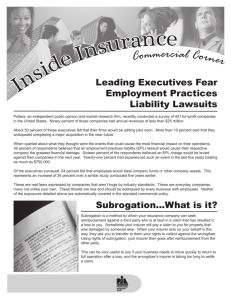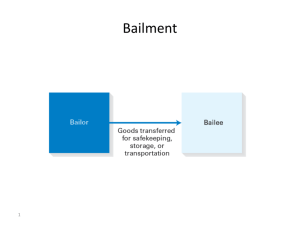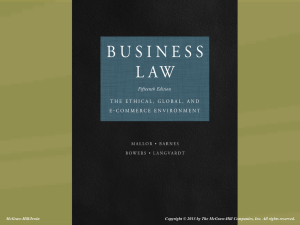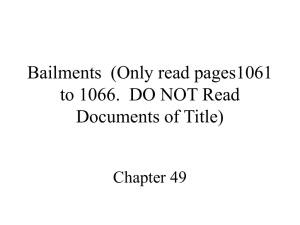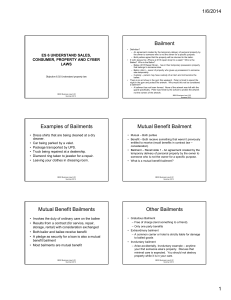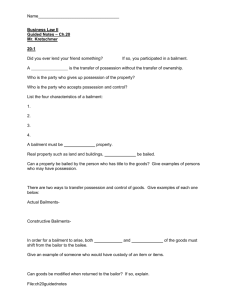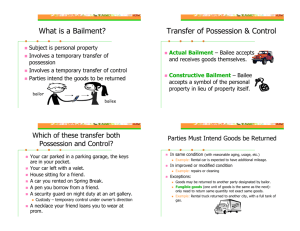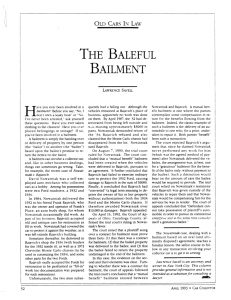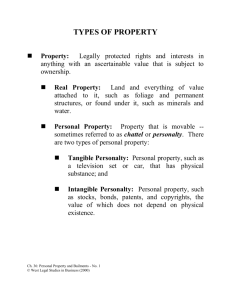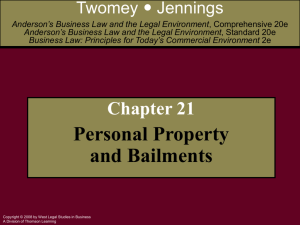Document
advertisement
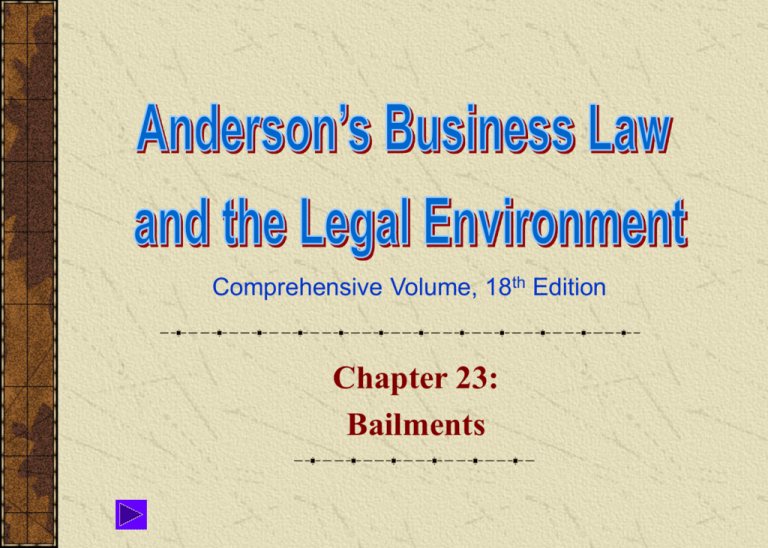
Comprehensive Volume, 18th Edition Chapter 23: Bailments Definitions bail v. to entrust one’s property to another for a special purpose under an agreement bailee n. person who accepts possession of property in trust bailment n. the legal relationship that arises when one person delivers possession of personal property to another under an agreement, express or implied, by which the latter is under a duty to return the identical property to the former or to deliver it or dispose of it as agreed Chapter 23 bailor n. owner of the property, or person with physical possession of the property who turns over possession under a bailment Bailment Chapter 23 A bailment is when tangible personal property is delivered by the owner (bailor) to another person (the bailee) under an agreement that the identical property will be returned or delivered in accordance with the agreement. The bailee has possession, but not title. When a person comes into the possession of the personal property of another without the owner actually delivering it, the law classifies the relationship as a constructive bailment. Required Elements of Bailment Agreement Bailor Bailee Delivery Acceptance of Delivery Chapter 23 Classifications Bailments may be classified in terms of benefit: (1) sole benefit of the bailor, (2) sole benefit of the bailee, or (3) benefit of both parties (mutual benefit bailment). Chapter 23 Standard of Care In some states, the standard of care required of a bailee is related to the class of bailment: sole benefit of the bailor: the bailee is required to exercise only slight care and is liable for gross negligence only sole benefit of the bailee: the bailee is liable for the slightest negligence for mutual benefit, as in a commercial bailment: the bailee is liable for ordinary negligence Chapter 23 In other states, the courts apply a “reasonable care under the circumstances” standard. Duties of Bailee A bailee: must perform the bailee’s part of the contract; must exercise reasonable care of bailed property; unless otherwise agreed, must bear the repair expenses incidental to the use of property in a bailment for hire situation; and must return the identical property. Chapter 23 If a bailee injures a third person while driving a rented motor vehicle, the bailee is liable to the third person as though the bailee were the owner of the vehicle. Rights and Duties of Bailor Chapter 23 Bailor may sue the bailee if the goods are not redelivered according to the agreement. In a mutual benefit bailment, the bailor is under a duty to furnish goods reasonably fit for the purposes contemplated by the parties. The bailor may be held liable for damages or injury caused by the defective condition of the bailed property.
